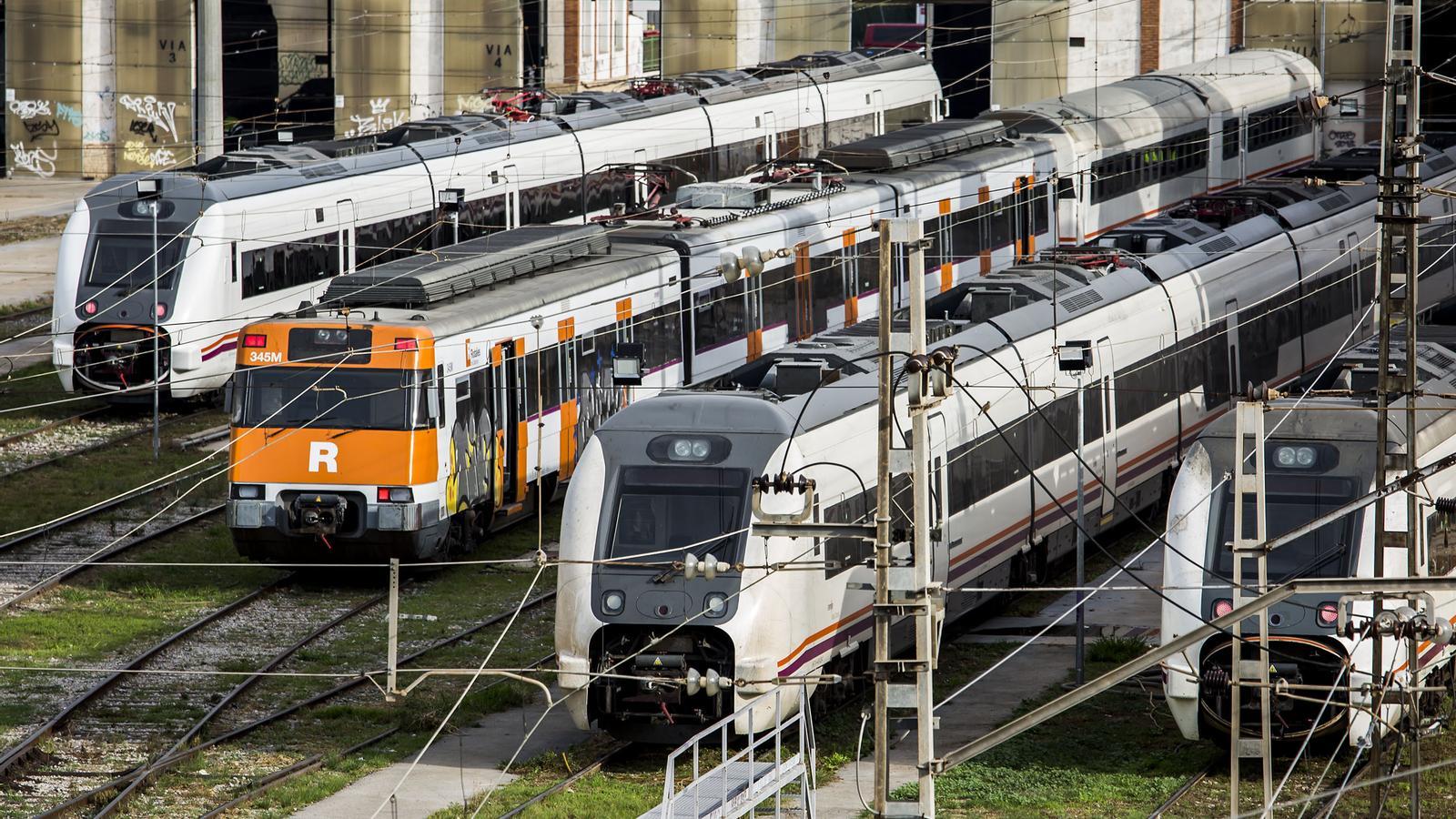At least 16 Renfe trains are stopped due to air conditioning problems.
Neither Renfe nor the Generalitat make public the data on how many trains are immobilized in Catalonia.


BarcelonaThe heat of recent weeks is wreaking havoc on Renfe's train fleet operating in Catalonia. For example, at least 16 trains were out of service last week due to various air conditioning problems and breakdowns, according to the train drivers' union, Semaf, which states that this is a "very high" figure. But these are not the only damaged trains: union sources tell ARA that, in total, during the months of June and July, the number of immobilized trains has reached around 30%, well above the usual 15%.
Having between 25% and 30% of trains queued in workshops means that the company currently has between 70 and 80 of the 275 trains in Catalonia out of service—for various reasons, such as maintenance, cleaning, or on standby to respond to incidents. However, the exact figure is not public. When asked by this newspaper, neither Renfe nor the Generalitat (Catalan government) responded to this question.
The operator claims that the number of immobilized trains varies daily and therefore does not make them public. For its part, the Territory Department—the service provider that regularly receives Renfe's reports—asserts that it has no knowledge of how many trains are currently out of service.
On the platforms, however, users do notice the problems. During June and July, complaints have become evident, especially on social media, not only due to air conditioning problems, but also due to the "sudden disappearance" of trains—that is, scheduled trains that do not run—or due to the absence of double trains (two trains traveling together to double capacity), especially in the hours after hours.
In recent weeks, trains have even been running through Catalonia with all their windows covered in graffiti, which doesn't normally happen, because when a train is completely covered by graffiti, it's usually covered up for cleaning.
User platforms assert that problems with missing trains or double-deck trains are constant and demand transparency. "We don't have data, although we have asked for reliable and audited indicators of how many journeys are delayed, how many are canceled, and how many are running in single or double trains. These are the figures they should have," notes the president of the Public Transport Promotion Association, Adrià Ramírez. "We want this data because the network's main problem right now is reliability, and therefore, we want figures to see if, with all the improvements they are making now, these indicators will also improve over time," he argues.
An aging fleet
This is not the first time that Catalonia has suffered from a lack of trains due to breakdowns or maintenance. In April, after the Railway chaos due to the March train drivers' strikeCouncilor Sílvia Paneque also said in Parliament that 24% of Renfe's rolling stock was unavailable. This is not limited to Catalonia, but is widespread throughout Spain. They assert that fleets are failing and that, throughout Spain, between May and June, there were 4,000 incidents recorded at Renfe, across commuter, medium- and long-distance services.
In this regard, last week the president of Renfe contextualized the figures at a meeting at the Executive Forum. explain, and continued to assure that since 2020 more than 4.5 billion euros have been allocated to the purchase of trains, and that more than a hundred are already about to arrive: "They will arrive in 2026, 2027, 2028, 2029 and 2030" taking the opportunity to explain that the operator makes 5,300 runs every day and that "it is impossible to be exempt from errors."
